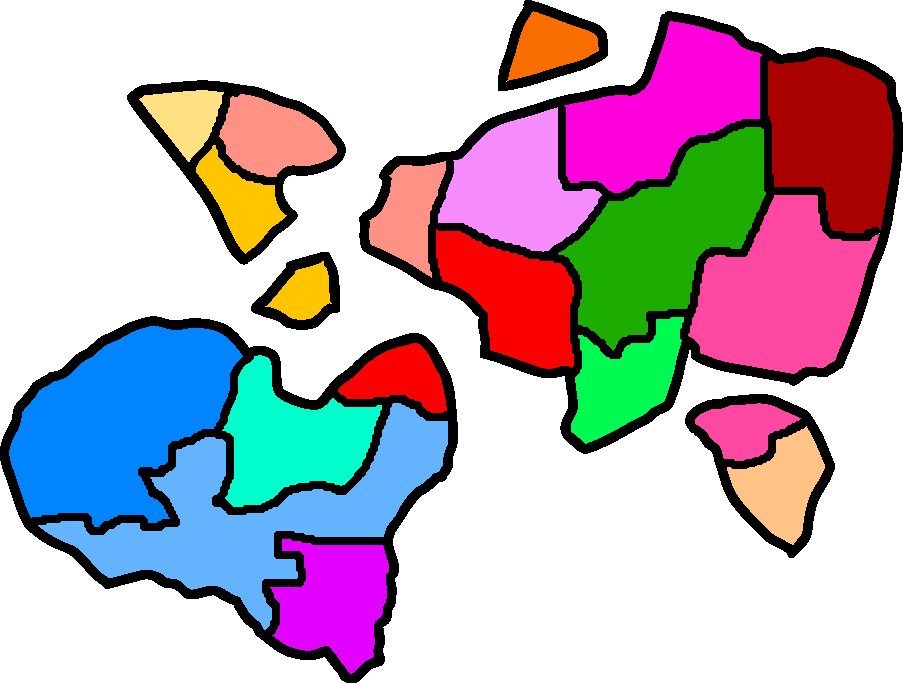
FEDERAL REPUBLIC OF SOLEMANIA
PARLIAMENT OF SOLEMANIA
PARUVIA, LEEYLAND TERRITORY
First Temporary Junta
SIGNED ON:
AI CO-WRITTEN DOCUMENT
AI USED: Bing Compose at March 23, 2023
USED FOR: Partly-Generating Article 2
[REPUBLIC ACT NO. 0003]
AN ACT
DECLARING THE ADMINISTRATIVE REGIONS OF THE SOLEMANI ISLANDS AND THE GOVERNMENTAL SYSTEM OF SOLEMANI REGIONS.
Preamble
WE, the members of the First Temporary Junta, who administer Solemania and represent the developing people of these islands,
RECOGNIZING the importance of a robust system of administrative regions;
ACKNOWLEDGING the promise of the name of our nation that the Republic is a federation;
WORRIED that without a stable and functioning system, the Republic will collapse due to in-fighting by the major factions of Solemania, the Sakuille, Turkém, and Mahapur, as well as the various native peoples such as the Salamin, iMakhindi, and Axin;
UPON THE APPROVAL OF ETERNAL DICTATOR ALPHA, HEREBY DECLARES REPUBLIC ACT NO. 0003 TO BE VALID.
Chapter 1: General Provisions
Article 1: Name
- The official name of Republic Act No. 0003 may be cited as the Territorial Organization Act of 2023.
Article 2: Terminology
- When used in this Act, the term—
- "administrative region", "region", "state", and "territory" refers to a designated geographical area within the Republic that is governed by a devolved designated administrative body or officials.
- "devolution" refers to the transfer of powers or responsibilities from a central government to a lower level of government, such as state or regional government.
Article 3: Objectives
- The goals of this Act are to establish the guidelines and standards for recognizing micronations and diplomatic and foreign policy. The objectives of the law are to-
- to recognize the diversity and autonomy of the people and communities living in different parts of the Solemani islands;
- to provide for a clear and consistent division of powers and responsibilities between the central government and the regional governments;
- to promote good governance, accountability, transparency, participation, and cooperation among all levels of government;
- to facilitate coordination and collaboration among regions on matters of common interest or concern;
- to uphold the rule of law, human rights, democracy, and peace in each region.
Chapter 2: Administrative Regions

Article 4: Regions in Xakkile
- The following regions in Xakkile are-
- Leeyland Territory, also known as the Leeyland Capital Region (LCR);
- Region I, also known as Sá'ake Alo;
- Region IIa, also known as the Kelin Territory or Kelin Alo;
- Region IIb, also known as Kelin Ratér.
Article 5: Regions in Turkém
- The following regions in Turkém are-
- Region III, also known as Iblastōr;
- Region IV, also known as the Qetér Region, Qetér Territory or simply Qetér;
- Region V, also known as Leke'êm;
- Region VI, also known as Ómetor.
Article 6: Regions in Mahapur
- The following regions in Mahapur are-
- Region VII, also known as Sá'ake Ratér;
- Region VIIIa, also known as the Safápur Territory, Millard Territory or Safápur Alo;
- Region VIIIb, also known as the O'léntian, Southern Milliard Territory, or Safápur Ratér;
- Region IX, also known as Sa'além.
Article 7: Special Native Administrative Regions
- The following regions in that are considered as special native administrative regions are-
- SNAR I, also known as Žailum;
- SNAR II, also known as Axile;
- SNAR III, also known as iMakhindiyar;
- SNAR IV, also known as Fažikel.
Article 8: Further Amendments Of Regions
- A new committee represented by the people within the Parliament will oversee amendments of the towards creation of new regions.
- The members of the committee shall be represented by a popular vote of the citizens of the Federal Republic.
- All proposals towards the amendment of a region must follow the following criteria in order to be accepted-
- must be of relevance towards a current political, economic, or social issue;
- must not cause, directly or indirectly, gerrymandering, segregation of race, belief, wealth, etc., destroy native lands, and/or cause anything related to what is specified; and
- must be accepted by at-least seventy percent of the committee and another seventy percent of citizens of the Republic.
Chapter 3: Distribution of Powers of Government
Article 9: General Provisions
- Regions in the Republic are sovereign but limited by the Constitution alone.
- Regions may nullify laws of the Republic if there are social, political, or economic issues within it, however to prevent abuse, they must submit their request at Parliament and get a majority.
- Regions must have a position known as Regional Minister, which will be elected by the Regional Parliament.
Signed,
Eternal Dictator Alpha
Author

Author

Prime Minister ItzCountryballs
In Support

In Support
